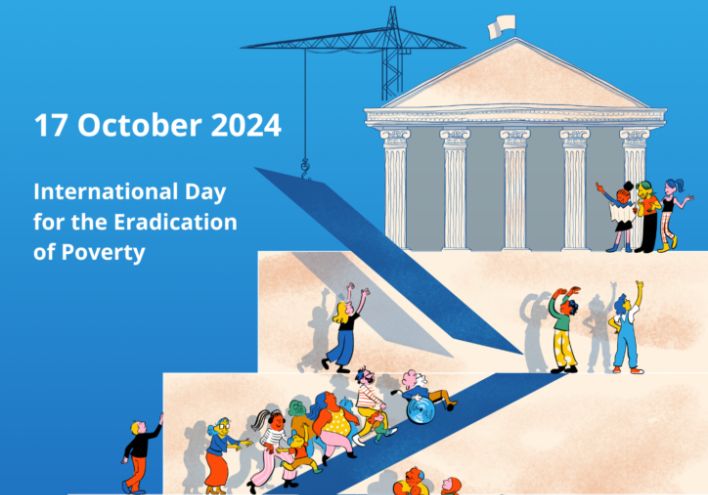Ending Social and Institutional Maltreatment

By ATD Fourth World’s International Leadership Team
Abraham was not allowed to sit exams at his local school. Like many children around the world, he did not have a birth certificate. He says: “Not having a birth certificate is like saying you don’t exist as a child, as a human being.” As a result, he could not continue his education. At a young age, Abraham had his dreams shattered. He already knows that throughout his life he will face this same obstacle when it comes to asserting his rights, seeking treatment, getting married, registering his own children, and being recognised as a citizen. He feels a deep sense of injustice in not being treated the same as everyone else.
In Europe, a young person tells us: “You are 17 years old and the child welfare services tell you: ‘You are coming of age, it’s going to be up to you to fend for yourself in life.'” But, placed in care homes at a very early age, these young people have no qualifications, and their family and social ties have been severely weakened. How can they be independent in a country where most young people are not independent before the age of 25?
A young mother on the street with her children called emergency housing for several hours, but no one picked up the phone. When they finally answered, she was told there was no accommodation available and she would have to call back the next day.
“My family is scared because we know we can’t ask for help without being judged. In fact, we don’t ask for anything anymore; it’s easier just to manage by ourselves.”
Social and institutional maltreatment
On 17 October 2024, the International Day for the Eradication of Poverty, the United Nations is calling for an end to social and institutional maltreatment. All over the world, such maltreatment is part of the daily lives of people living in poverty. Behind their situation, we no longer see who they really are, with their emotions, sensitivities, history, thoughts, experience, and contributions.
Social and Institutional Maltreatment are obstacles to the recognition of people and to the exercise of their basic rights as recognised by the Universal Declaration of Human Rights.
Such maltreatment also affect people working in institutions. By naming this maltreatment, we can act together not only to combat prejudice, stereotypes, and the belittlement of human values but also to restore an ethical dimension to institutions and their power to sustain and promote democracy in our societies.
On this World Day for Overcoming Poverty, the International Committee for October 17 is meeting in Dakar, Senegal, for a roundtable discussion entitled “I was born. I exist. Add me to the list.” It calls for wider mobilisation and welcomes any initiatives to ensure that all children can have a birth certificate and that all parents, whatever their situation, can add their children to the lists that should include all human beings.
On October 17 we must unite to take up the challenge of ending social and institutional maltreatment. First and foremost, we must unite with people who resist their situation of poverty and also with people who are already working to bring about a caring society with caring institutions.
Let us use our power to act, wherever we are, to reject exclusion and promote respect for the equal dignity of all people.

